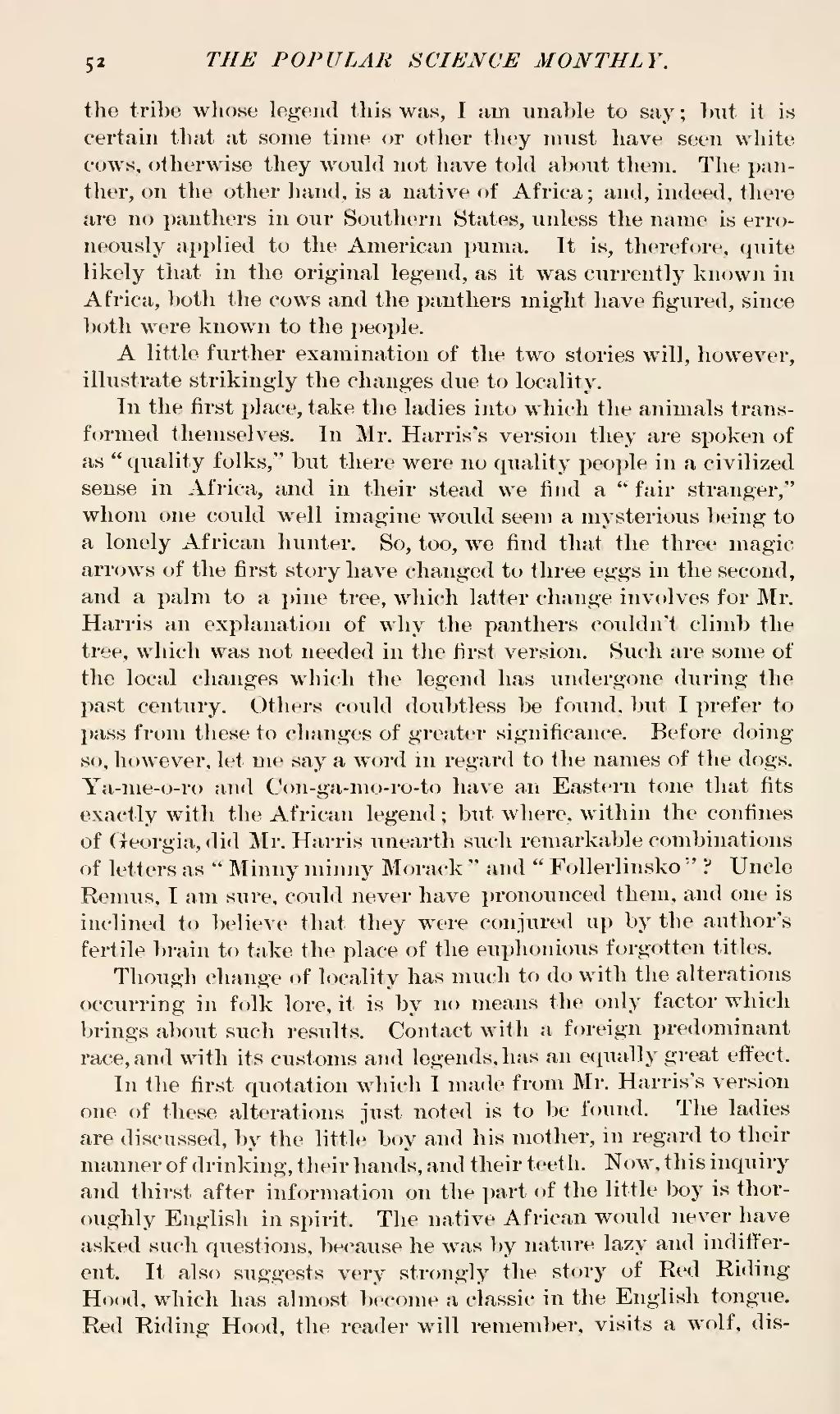the tribe whose legend this was, I am unable to say; but it is certain that at some time or other they must have seen white cows, otherwise they would not have told about them. The panther, on the other hand, is a native of Africa; and, indeed, there are no panthers in our Southern States, unless the name is erroneously applied to the American puma. It is, therefore, quite likely that in the original legend, as it was currently known in Africa, both the cows and the panthers might have figured, since both were known to the people.
A little further examination of the two stories will, however, illustrate strikingly the changes due to locality.
In the first place, take the ladies into which the animals transformed themselves. In Mr. Harris's version they are spoken of as "quality folks," but there were no quality people in a civilized sense in Africa, and in their stead we find a "fair stranger," whom one could well imagine would seem a mysterious being to a lonely African hunter. So, too, we find that the three magic arrows of the first story have changed to three eggs in the second, and a palm to a pine tree, which latter change involves for Mr. Harris an explanation of why the panthers couldn't climb the tree, which was not needed in the first version. Such are some of the local changes which the legend has undergone during the past century. Others could doubtless be found, but I prefer to pass from these to changes of greater significance. Before doing so, however, let me say a word in regard to the names of the dogs. Ya-me-o-ro and Con-ga-mo-ro-to have an Eastern tone that fits exactly with the African legend; but where, within the confines of Georgia, did Mr. Harris unearth such remarkable combinations of letters as "Minny minny Morack" and "Follerlinsko"? Uncle Remus, I am sure, could never have pronounced them, and one is inclined to believe that they were conjured up by the author's fertile brain to take the place of the euphonious forgotten titles.
Though change of locality has much to do with the alterations occurring in folk lore, it is by no means the only factor which brings about such results. Contact with a foreign predominant race, and with its customs and legends, has an equally great effect.
In the first quotation which I made from Mr. Harris's version one of these alterations just noted is to be found. The ladies are discussed, by the little boy and his mother, in regard to their manner of drinking, their hands, and their teeth. Now, this inquiry and thirst after information on the part of the little boy is thoroughly English in spirit. The native African would never have asked such questions, because he was by nature lazy and indifferent. It also suggests very strongly the story of Red Riding Hood, which has almost become a classic in the English tongue. Red Riding Hood, the reader will remember, visits a wolf, dis-
